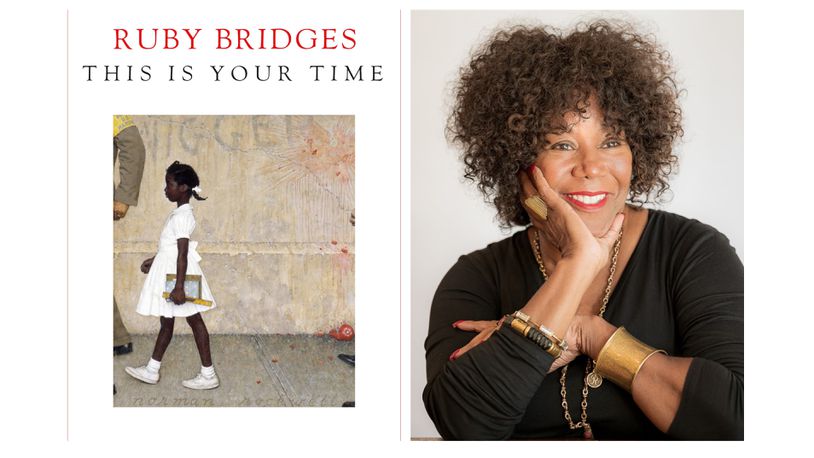By Claretta Bellamy
Civil rights icon Ruby Bridges made history as the first Black student to attend an all-white school in 1960, and now she’s sharing her inspirational story through a new children’s book.
“I Am Ruby Bridges” tells the activist’s story through the eyes of her 6-year-old self. It chronicles her experience as the first Black student to attend William Frantz Elementary, an all-white school in New Orleans, and the challenges she faced.
Born in Tylertown, Mississippi in 1954, the same year the U.S. Supreme Court ruled that racial segregation of children in public schools was unconstitutional, Bridges said she was the target of racial slurs, harassment and bullying from adults every day she attended school. In one incident, a white woman even held a Black doll in a coffin, she recalled, frightening her deeply. Because of her enrollment, many white parents pulled their children out of the school.
Bridges believes that her 48-page picture book, which includes vivid illustrations by Nikkolas Smith and a glossary to help young readers learn new words, will teach important lessons to the next generation of activists.
“It is important for all children to know all of our history, good or bad,” Bridges, 67, said in an email to NBC News. “It is our shared history in this country and because of it we should all know that history.”
After completing grade school, Bridges went on to graduate from integrated Francis T. Nicholls High School. She married in 1984 and became the mother of four sons, working as a travel agent. In 1999, she created the Ruby Bridges Foundation, a nonprofit organization that fights racism and advocates for equal rights. Bridges authored multiple books about her integration experience, including “Through My Eyes” and “This Is Your Time.”
With her latest illustrated children’s book, Bridges hopes to offer young people a history lesson on America’s troubled past. “The fact that my own introduction to racism came from this experience at just 6 years old while integrating the Frantz school is why this project is so important to me,” she said. “Because of the current climate around race relations, I feel that it is a calling for me to help teach that same age and to tell them my story.”
Although there seems to be a growing list of books on racism and inequality being banned in schools across the U.S., Bridges said she’s not worried about the critics.
“There may well be backlash over this book, but it is my story,” she said. “It is my calling and the work I have chosen to do. I believe in my heart if we are ever to get past our racial differences it is going to come from our children.”
“I hope this book will inspire all children, not just children of color, to judge one another by the content of their character, not the color of one’s skin,” she added.

